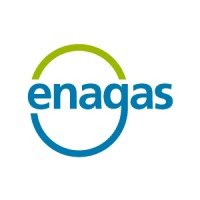Ebro Hydrogen Corridor launches
The Ebro Hydrogen Corridor makes the region more competitive by strengthening the hydrogen value chain.

The Ebro Hydrogen Corridor project has been launched, which will link the major regional initiatives for renewable hydrogen already underway in northeastern Spain.
The new corridor aims to play a leading role in the decarbonisation of industry in the region while improving competitiveness and attracting new investments.
The project is supported by regional entities such as:
- The Basque Hydrogen Corridor Association (BH2C)
- ACCIÓ – Agency for Enterprise Competitiveness as the entity responsible for the Hydrogen Valley of Catalonia (H2ValleyCat)
- The Foundation for the Development of New Hydrogen Technologies in Aragon (Fundación Hidrógeno Aragón) is responsible for coordinating the Aragon Hydrogen Valley“GetHyGA Initiative.”
- The Industry Association of Navarre (AIN) and the Society for the Development of Navarre (SODENA) for promoting the Navarre Green Hydrogen Agenda.
The Ebro Hydrogen Corridor will promote actions throughout the value chain, including production, transport, use, and storage. In terms of renewable hydrogen production, the consortium aims to install a production capacity of 400 MW in 2025 (1.5 GW of associated renewable generation production capacity), and 1.5 GW in 2030 (6 GW of renewables).
Another of its key lines of action will focus on promoting the end uses of renewable hydrogen, both in the transport sector and for industrial use. The objective of achieving production of 250k tonnes/year of products derived from renewable hydrogen, such as methanol, ammonia or synthetic fuels by 2030 is significant.
The consortium will also promote the creation of an infrastructure network with 20 hydrogen fuelling stations by 2025, with up to 100 points by 2030, to facilitate the use of renewable hydrogen inland, maritime, and rail transport.
In addition, cross-border projects for renewable hydrogen storage and transport will be promoted with Southern France to favour interconnection with Europe and position Spain as a relevant producer in the continental hydrogen market. This will be carried out in coordination with the Working Community of the Pyrenees, a cross-border, inter-territorial organisation.
The driver behind the creation of this consortium is SHYNE (Spanish Hydrogen Network) – the largest multisectoral renewable hydrogen consortium in Spain, launched last January. Under the leadership of Repsol, the SHYNE project will deploy projects in ten autonomous communities in Spain and have a total investment of €3.23 billion to develop more competitive technologies and evolve both the Spanish industry and its infrastructures towards decarbonisation, generating more than 13,000 jobs.
Teresa Ribera, the Spanish VP and Minister for Ecological Transition and the Demographic Challenge, said, “The hydrogen economy is here to stay, and the commitment of territories, companies, and industries like yours provide critical solutions that will be able to produce up to 70 or 80% of the hydrogen we need in our country.”
Josu Jon Imaz, Repsol’s CEO, commented, “Due to its location, the Ebro Hydrogen Corridor will be a key lever to effectively develop the full potential of this geographical area, with a cross-border dimension of the future hydrogen economy, allowing a greater integration of value chains at European level.”
